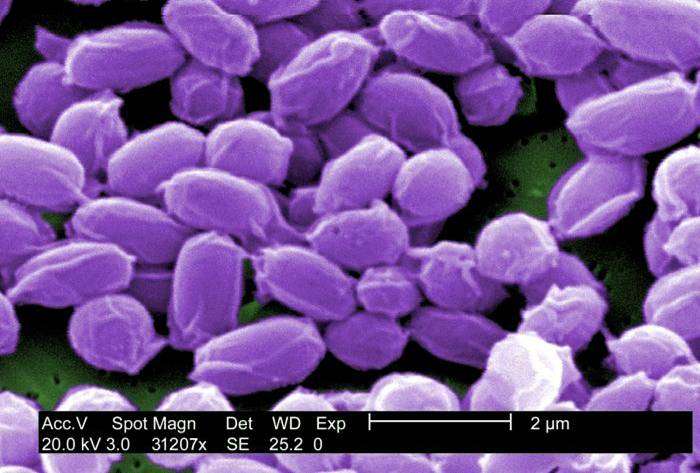Spores of the anthrax bacteria (Bacillus anthracis). Credit: CDC
Zambia on Tuesday reported more cholera deaths as it battles the bacterial disease as well as its worst outbreak of anthrax in more than a decade.
Four people died of cholera in the capital Lusaka in 24 hours, authorities said, taking the national death toll to 64 this year.
The disease has now killed at least 46 people and infected more than 1,600 in Lusaka, the Zambia National Public Health Institute said.
Cholera is contracted from bacteria generally transmitted through contaminated food or water.
Health Minister Sylvia Masebo said the government was providing chlorine to treat water in badly affected areas and urged people to adopt strict hygiene rules.
The deaths came just days after the World Health Organization (WHO) warned that Zambia was witnessing its biggest anthrax outbreak since 2011.
The country has reported at least four deaths and almost 700 suspected cases since the start of the year, the WHO said.
Anthrax, spread through bacteria in soil, commonly infects grazing livestock and wild animals.
Humans can become infected from contact through breathing the spores, eating contaminated food or through cuts in the skin, for instance by handling diseased animals.
The WHO said that 26 of the cases came from "consuming meat from three wild hippopotamus carcasses".
It said there was a "high" risk of anthrax spreading to neighboring countries because of "the frequent movement of both animals and people".
Kenya, Malawi, Uganda and Zimbabwe have also seen anthrax outbreaks this year, with more than 1,100 suspected cases and 20 deaths across the five countries, according to the WHO.
© 2023 AFP























